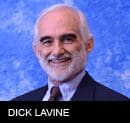What can be done to address the barriers that often make it difficult for disadvantaged children to succeed in school? Noted education researcher Helen Ladd of Duke University proposes three steps, all backed by extensive research:
- Disadvantaged children often suffer from poor health and nutrition—which can be corrected by high-quality early childhood and preschool programs. School-based clinics, nurses, and mental health counselors can also help older children.
- Early exposure to rich language boosts cognitive development, so we need to help poor parents and other caregivers read to children and engage them in conversations.
- Poor families cannot give children the enrichment experiences privileged families routinely provide. Public after-school and summer programs matter most for the poor.
Of course, these supportive services require additional investments, but the long-term payoff for both individual disadvantaged children and all of us in the State of Texas is many times the initial cost.
